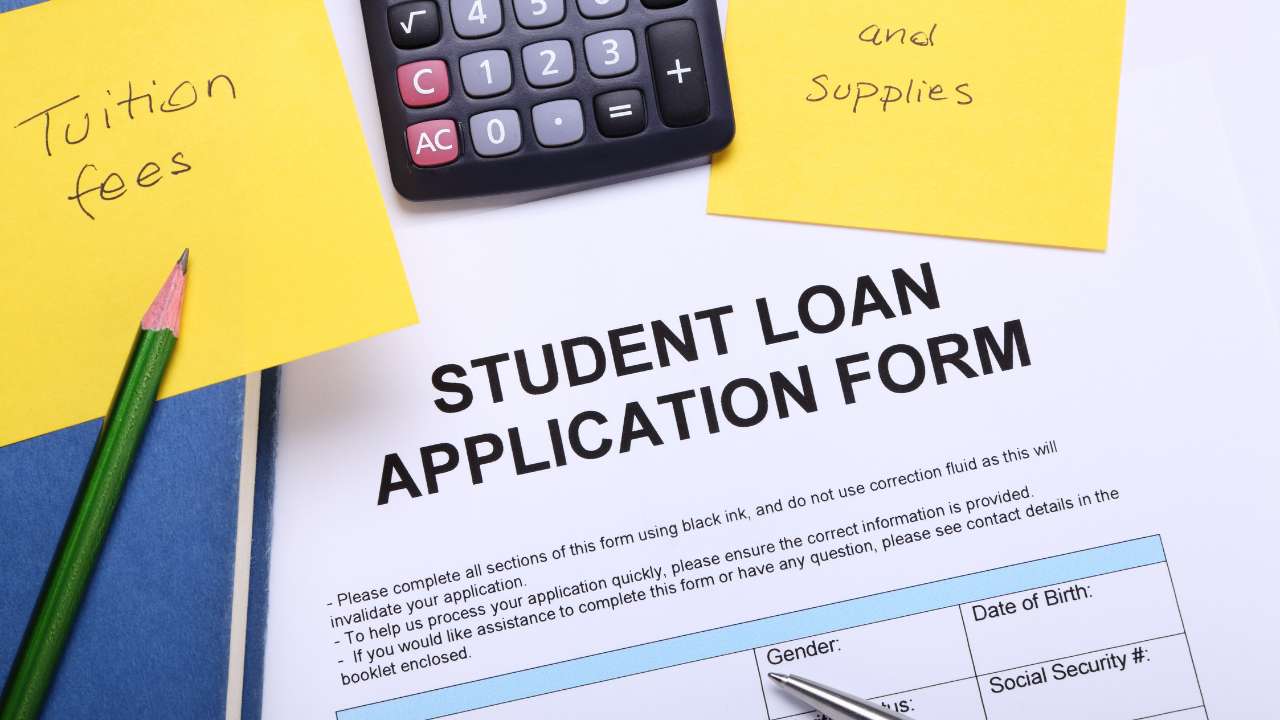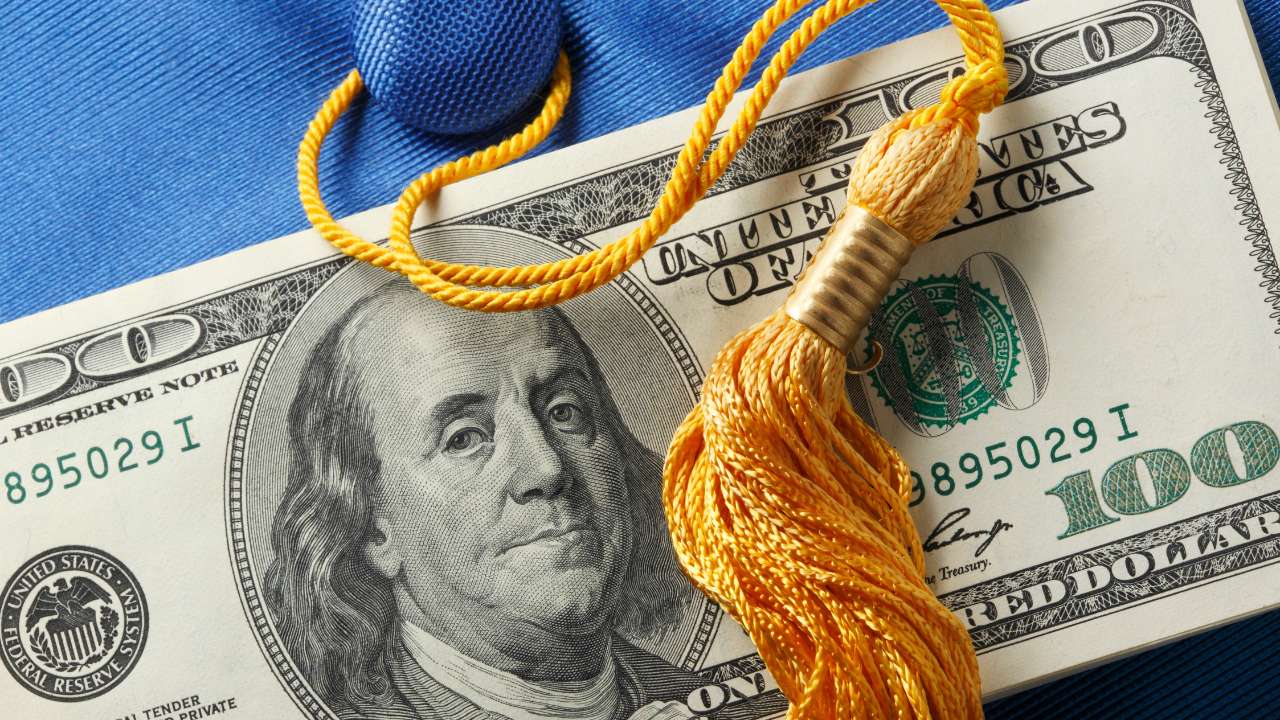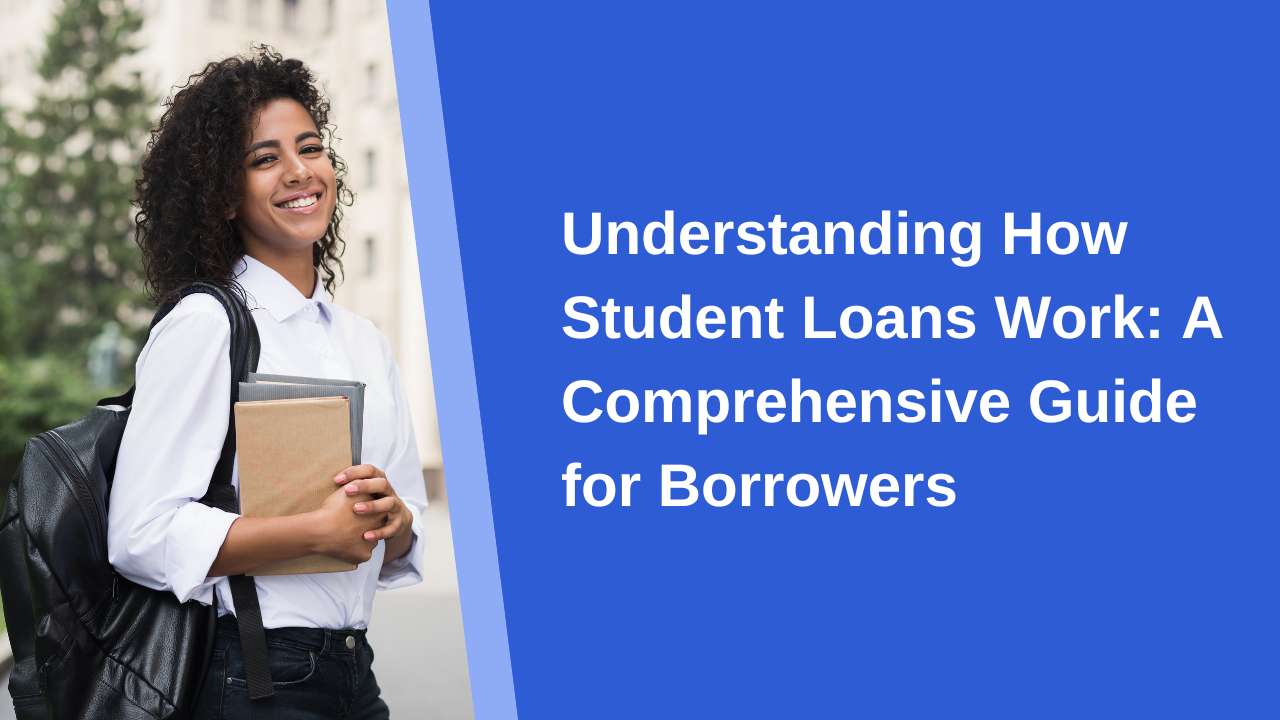Student loans are a type of loan used specifically to finance the cost of attending post-secondary education, such as college or university. In most cases, students and their families borrow money to cover tuition fees and living expenses while they’re in school.
Here’s what you need to know:
Definition of Student Loans
A student loan is a type of loan that is designed to help students and families pay for college. Unlike other types of loans, such as personal loans or auto loans, student loans are specifically intended for education-related expenses, such as tuition, fees, books, and housing.
When you take out a student loan, you are borrowing money that you will need to repay over time, usually with interest. Depending on the type of loan you have, you may need to start making payments while you are still in school or after you graduate.
How to Apply for Student Loans
To apply for a student loan, you will need to fill out a Free Application for Federal Student Aid (FAFSA) or an application through a private lender. The application will ask for information about your financial situation, including your income, assets, and other financial resources.

Once you’ve submitted your application, the lender will review it and determine whether you qualify for a loan. If you do, the lender will send you a loan offer that includes the amount of money you can borrow, the interest rate, and the repayment terms.
Different Types of Student Loans
There are several different types of student loans available, including:
Federal
- Federal Direct Subsidized Loans: These loans are offered by the federal government to undergraduate students who demonstrate financial need. The government pays the interest on these loans while you are in school and during deferment periods.
- Federal Direct Unsubsidized Loans: These loans are similar to subsidized loans, but they are available to both undergraduate and graduate students regardless of financial need. Interest on these loans accrues while you are in school and during deferment periods.
- Federal PLUS Loans: These loans are available to graduate students and parents of undergraduate students. They require a credit check and may have higher interest rates than other federal loans.
Private
- Private Loans: Private student loans are offered by banks, credit unions, and other private lenders. They may have higher interest rates and fewer borrower protections than federal loans, but they can be a good option if you don’t qualify for federal aid or need to borrow more than the federal limits allow.
The Best Places to Find/Refinance Student Loans
If you’re looking for a student loan, you have a few options to choose from. Two of the best places to find and refinance student loans are Ascent Student Loans and SuperMoney Student Loans.
Here’s an overview of each service and the benefits they offer:
Ascent Student Loans
Ascent Student Loans is a leading provider of student loans that are designed to help students and families pay for college. With Ascent, you can borrow up to 100% of your school-certified cost of attendance, including tuition, fees, books, housing, and more.
One of the key benefits of Ascent Student Loans is that they offer flexible repayment options, including deferment, interest-only payments, and immediate repayment. You can also choose from fixed or variable interest rates, depending on your needs and preferences.
Another advantage of Ascent Student Loans is that they don’t require a cosigner for most borrowers. This can be a major benefit if you don’t have a cosigner or if you want to avoid burdening a family member or friend with your debt.
SuperMoney Student Loans
SuperMoney Student Loans is another excellent option for finding and refinancing student loans. With SuperMoney, you can compare rates and terms from multiple lenders to find the best deal for your needs and budget.
One of the key benefits of SuperMoney Student Loans is that they offer a wide range of loan options, including private student loans, federal student loans, and student loan refinancing. This gives you the flexibility to find the loan that works best for you.
Another advantage of SuperMoney Student Loans is that they provide expert guidance and advice throughout the loan process. This can be especially helpful if you’re new to the world of student loans and need some extra support.
Overall, both Ascent Student Loans and SuperMoney Student Loans are excellent options for finding and refinancing student loans. We encourage you to compare rates and terms from both services to find the best deal for your needs.
Repaying Student Loans
Once you’ve borrowed money through a student loan, you will need to start repaying it after you graduate or leave school. Depending on the type of loan you have, you may have a grace period before you need to start making payments.

When you start repaying your loan, you will need to make regular payments to your lender. The amount you pay will depend on the size of your loan, the interest rate, and the repayment plan you choose.
One great way to chip away at your student loans is to take advantage of rewards programs like the Laurel Road Credit Card, where you can earn 2% cash back toward your student loans.
If you’re having trouble making your payments, you may be eligible for loan forgiveness or other repayment options. It’s important to talk to your lender about your options if you’re struggling to make your payments.
FAQ:
Do student loans go away after 20 years?
In some cases, yes. If you have federal student loans, you may be eligible for loan forgiveness after 20 or 25 years of repayment, depending on the repayment plan you choose. Private student loans do not offer loan forgiveness.
Is $200,000 in student loans a lot?
Yes, $200,000 in student loans is a significant amount of debt. It’s important to carefully consider the cost of your education and the amount of debt you’re taking on before you borrow money for college. This level of debt is fairly common for certain professions such as medical doctors and lawyers.
What are the 4 types of student loans?
The four types of student loans are federal direct subsidized loans, federal direct unsubsidized loans, federal PLUS loans, and private loans.
Who qualifies for student loan money?
To qualify for student loan money, you must be enrolled in an eligible educational program, be a U.S. citizen or eligible non-citizen, and not have any defaulted federal student loans. Your eligibility for federal student aid will also depend on your financial need and other factors.
Conclusion
Understanding how student loans work is an essential part of managing your finances as a student or recent graduate. By knowing your options for finding and refinancing student loans, understanding the different types of loans available, and being aware of your repayment options, you can make informed decisions about your education and financial future. Consider using Ascent Student Loans or SuperMoney Student Loans to find the best loan for your needs and budget, and be sure to talk to your lender if you need help managing your payments.







